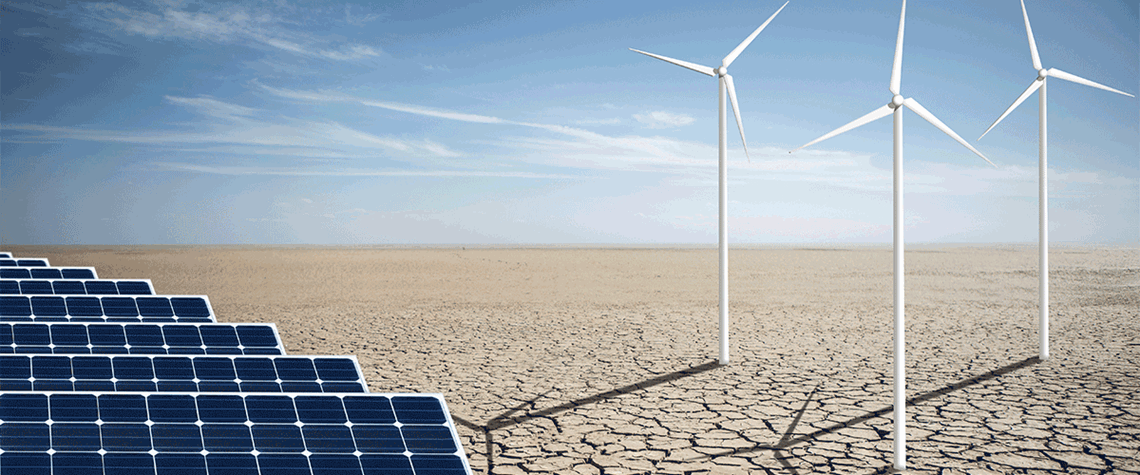This year’s UN Climate Change Conference (Cop27) produced mixed results. It managed to deliver two major breakthroughs: one is the creation of a loss-and-damage fund to support poorer countries disproportionally affected by climate impacts despite having contributed only a small share of global greenhouse gas emissions. The other is the call for a reform of the International Monetary Fund and the multilateral development banks to align global public finance with the goals of the Paris Agreement.
At the same time, the mitigation section of the final text from Cop27 was largely a copy-paste of last year’s commitments and failed to mention the single biggest step that the global economy needs to take to keep the 1.5°C goal alive: the reduction of oil and gas demand and eventual phase-out of fossil fuel production. As such, Cop27 ended up being a missed opportunity to show continued commitment and to push for more action on energy system transformation.
This lack of political ambition is partly a reflection of the global challenge posed by the ongoing polycrisis, with the policymakers largely preoccupied by the need to provide a short-term response. Much more than that, however, it signals that global politics are out of touch with shifting economic reality.
Cop27 saw the energy transition and development pathways being hotly debated, with the role of fossil fuels among the most discussed topics. Yet, the two weeks of talks saw the birth of a broad coalition of more than 80 countries, among them the largest oil and gas producers and consumers, calling for the inclusion of a fossil fuel phase-down in Cop27’s official language. The call has been blocked by a handful of oil producers led by Saudi Arabia—for now. Simon Stiell, executive secretary of the UN Framework Convention on Climate Change, expects the political momentum towards a fossil fuel phase-down commitment to grow and be at the centre of next year’s Cop28 negotiations.
Meanwhile, this failure of the formal negotiations to deliver meaningful outcome on mitigation is not entirely representative of global energy—in particular, gas—diplomacy, which continued taking shape ahead of, and parallel to, the conference. Not only did the Global Methane Pledge, launched last year, gain more than 40 new signatories, but also a new initiative has been put forward by major gas producers and importers explicitly targeting methane emissions across the whole oil and gas value chain. This initiative adds an energy security twist to the climate angle, as the saved methane can add flexibility to the global gas market quickly and without investments in new oil and gas production. The Beyond Oil and Gas Alliance and the Fossil Fuel Non-Proliferation Treaty, initiatives aimed at halting and ultimately phasing out the expansion of oil and gas upstream, have also grown this year, gaining new members.
Paradigm shift
Most importantly, and regardless of the lack of progress on the official political agenda, economic and other structural indicators are increasingly pointing to an ongoing paradigm shift away from fossil fuels and towards clean-energy-based economic growth models.
In fact, many observers expected Cop27, attended by more than 600 participants representing the fossil fuel industry, to turn into a venue for new gas deals. Though some talks took place, they resulted in a few non-binding memorandums of understanding. The only initiative linked to an actual investment decision, the new US-Germany-Egypt partnership, targets Egypt’s gas demand reduction in order to reroute this gas to the European market and replace it with renewables-based power generation capacity.
Together with the fact that pre-Cop conversations around new oil and gas production have resulted in only two FIDs this year, this signals the growing awareness of the economic risks related to long-term investments in this segment of the energy sector. These emerging economic trends are likely to stay with us, as record high fossil fuel prices force an earlier oil and gas demand peak, even by the more conservative estimates. In its flagship World Energy Outlook 2022, the IEA projects oil demand to peak by 2035 and gas demand to plateau in 2030, even if the world’s economies did not add any further ambition to their current climate policies. This is a warning signal to any industrial or investment strategy still relying on the long-term expansion of fossil fuel use.
At the same time, installed renewables capacity is set to break another record in 2022, hitting the 300GW mark—190GW of which is utility-scale and distributed solar. Though the downward cost curve for renewable energy investments has been disrupted by the ongoing energy crisis and the resulting supply-chain bottlenecks, renewables keep their competitive edge over the cheapest fossil fuel-based generation due to the growing production and supply costs for coal, gas and oil. Backed by the strong economic narrative and the need to boost the global economy’s resilience to geopolitical shocks, clean energy has become the core of the emerging global energy security narrative, shaped throughout the key diplomatic events of the year—including the G7, Clean Energy Ministerial, the G20 and now Cop27.
The South-South transition initiatives and investment frameworks launched this year have been entirely focused on clean energy solutions. Among them are the Egypt-led Africa Just and Affordable Energy Transition Initiative and the African Green Finance Facility Fund, launched by the African Development Bank. Initiatives targeting sectors beyond power, such as the Industry Decarbonisation Programme, as well as many other frameworks including Indonesia’s and South Africa’s Just Energy Transition Partnerships, point toward clean energy manifesting itself as the growth market while signalling the shrinking window for oil and gas investments.
It is now a matter of time before the politics catches up with these irreversible geoeconomic trends.
Maria Pastukhova is the senior policy advisor at the climate change think tank, E3G.
This article is part of our special Outlook 2023 report, which features predictions and expectations from the energy industry on key trends in the year ahead. Click here to read the full report.








Comments